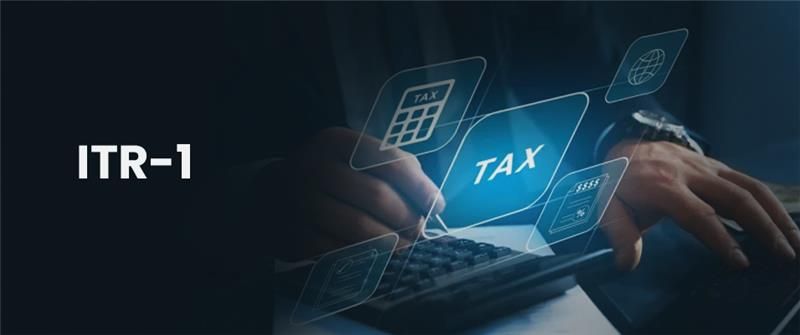News Flash
ITR-1
ITR-1 is the tax form for salaried individuals with income from one source. It requires accurate information about income, deductions, and taxes paid. Claim all eligible deductions, double-check for errors or omissions, and verify if e-filing. Filing your return is a legal requirement and a responsible act. Take the time to do it right for your financial health and peace of mind.
Who can file ITR-1 Sahaj Form?
- The ITR-1 Sahaj form is for salaried individuals or pensioners with income from a single source, such as salary or pension
- It can also be used by individuals with income from other sources, such as interest income, provided their total income does not exceed Rs. 50 lakhs for the financial year
- ITR-1 is a simple tax form with fewer sections, making it easier to file returns for those with uncomplicated tax situations
- Individuals with income from business or profession, capital gains, or agricultural income exceeding Rs. 5,000 cannot file ITR-1 and must use the appropriate form.
- Filing returns accurately and on time is crucial to avoid penalties and interest charges. Gather all necessary information and documents, claim eligible deductions, and double-check everything before submitting your return.
Who cannot file ITR-1 Sahaj Form?
- Individuals with income from business or profession, such as freelancers, consultants, or self-employed individuals, cannot file ITR-1 Sahaj form
- Those who have earned income from capital gains, such as profits from the sale of stocks or property, cannot file ITR-1
- Individuals with agricultural income exceeding Rs. 5,000 cannot file ITR-1 and must use the appropriate form
- Anyone with income from more than one source, such as multiple salaries or rental income, cannot file ITR-1
- If an individual has income from sources outside of India, they cannot file ITR-1 and must use the appropriate form for foreign income reporting
- Those who have exempt income exceeding Rs. 5,000, such as interest income from tax-free bonds, cannot use ITR-1 and must file a different form
- Individuals who are directors of a company or have invested in unlisted equity shares are also not eligible to file ITR-1 Sahaj form.
Who cannot file ITR-1 Sahaj Form?
- Individuals with income from business or profession, such as freelancers, consultants, or self-employed individuals, cannot file ITR-1 Sahaj form
- Those who have earned income from capital gains, such as profits from the sale of stocks or property, cannot file ITR-1
- Individuals with agricultural income exceeding Rs. 5,000 cannot file ITR-1 and must use the appropriate form
- Anyone with income from more than one source, such as multiple salaries or rental income, cannot file ITR-1
- If an individual has income from sources outside of India, they cannot file ITR-1 and must use the appropriate form for foreign income reporting
- Those who have exempt income exceeding Rs. 5,000, such as interest income from tax-free bonds, cannot use ITR-1 and must file a different form
- Individuals who are directors of a company or have invested in unlisted equity shares are also not eligible to file ITR-1 Sahaj form
.
